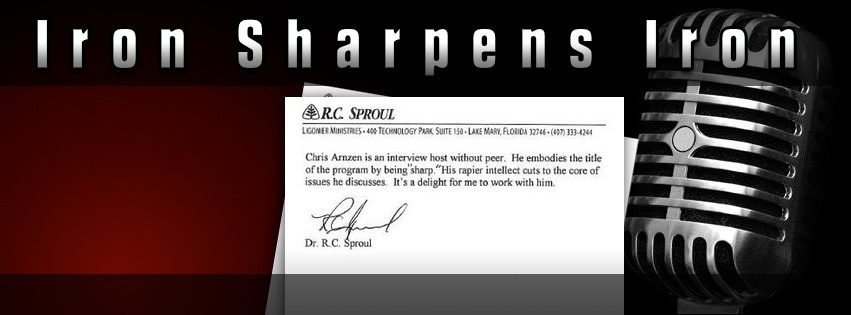




 |
|||||
 |
AN EXPOSITION UPON THE EPISTLE OF JUDE
William Jenkyn![]()
Spurgeon said of this classic Puritan commentary: "A TREASURE-HOUSE OF GOOD THINGS."![]()
Thomas Manton first gave up the idea of printing his work on Jude when he read this masterpiece by William Jenkyn, but later changed his mind when urged by friends. Yet he tell us, "I consulted with my reverend brother's book, and when I found at any point at large discussed by him, I either omitted it or mentioned it very briefly; so that his labours will be necessary to supply the weakness of mine."![]()
Cyril Barber said, "William Jenkyn was a diligent student of the Word, an able expositor, and known throughout England for his piety. We welcome the republication of this outstanding commentary. It is a tribute to the foresight of the publishers that they are making it available to a new generation of Bible students and teachers."![]()
Joel Beeke has added, "Jenkyn's Exposition of the Epistle of Jude remains unsurpassed today. It powerfully exhibits Jenkyn's piety and learning."![]()
Malcolm Watts said, "The Exposition upon Jude by Jenkyn is beyond praise. In my opinion it ranks as one of the best in the old Nichols series."![]()
Rev. James Sherman, editor of the 1863 edition, wrote the following: "The following Exposition is the most considerable of Jenkyn's works, and exhibits his piety, diligence and learning. It was delivered at Christ Church, Newgate Street, in the ordinary course of his ministry, and met with great acceptance; two editions having been published during the life of the author, both of which have been carefully collated for the present publication. The editor believes that, from the great pains taken to render the work perfect, few errors have escaped detection. He now commits it to the favor of God, who, judging from the testimonies received from many ministers, has crowned the Exposition previously published with a large share of his blessing." ![]()
COVER IMAGE IS OF NEWGATE PRISON WHERE JENKYN DIED AS A MARTYR.![]()
HARDCOVER VOLUME AVAILABLE FOR 55% DISCOUNT![]()
SG COMMENTARY![]()
SGPC WP5![]()
SGHC npt hc7 cmms cmcs![]()
45% Discount![]() SGCB Price: $29.95 (list price $55.00)
SGCB Price: $29.95 (list price $55.00)![]()
Additional Information
• Biographical Sketch
| Biographical Sketch |
William Jenkyn was born in 1612 into a staunchly Puritan family in Sudbury, where his father, William Jenkyn, was vicar. His father was disinherited for his Puritan convictions, and his mother was the daughter of Richard Rogers, the godly preacher of Wethersfield in Essex, and the granddaughter of John Rogers, the Protestant martyr under the reign of Mary Tudor.
At the age of fifteen, William, Jr. went to St. John's, Cambridge to study under Anthony Burgess. After earning a bachelor's degree in 1628, he moved with Burgess in 1634 to Emmanuel College, earning a master's degree there in 1635. In 1639, he became lecturer at St. Nicholas Acons in London, then minister of St. Leonard's, Colchester. In 1643, he was appointed vicar of Christchurch, Newgate Street.
Jenkyn was one of the most zealous Presbyterians in London. His congregation soon became a center of Presbyterian zeal. His parish elected five elders, including William Greenhill, a godly publisher, and John Vicars, a Puritan activist.
Jenkyn was also one of the London ministers, who, along with Christopher Love and Thomas Watson, were imprisoned in 1651 for their attempts to assist in restoring the exiled Charles II to the throne via the power of the Scots army. Parliament used the plot's failure to silence the London Presbyterian ministers that supported it. While Love was executed, Jenkyn escaped with his life because he signed a submissive recantation. After he was restored to his ministry at Christchurch, Jenkyn preached for a few years about the names given to Christ in the Scriptures.
Under the Cromwellian protectorate, Jenkyn's reputation was publicly restored. In 1654, he replaced William Gouge as minister at St. Anne Blackfriars. His first task was to preach Gouge's funeral sermon. Jenkyn returned to Christchurch a few years later, and was officially reinstituted there in 1658. About that time, he preached his renowned series of sermons on Jude.
Jenkyn's Exposition of the Epistle of Jude remains unsurpassed today. It powerfully exhibits Jenkyn's piety and learning. Spurgeon says of it: "Earnest and popular, but very full, and profoundly learned. A treasure-house of good things." Thomas Manton said that the "elaborate commentary of [his] revered, Mr. William Jenkyn" was done so well, that for some time he regarded the publication of his own work on Jude as unnecessary.
Though Jenkyn probably welcomed the restoration of Charles II, he soon lost the favor of the new regime, and was ejected from the pulpit in 1662 as a Nonconformist. He settled in a home he owned in Hertfordshire, where he held conventicles, preaching privately to his neighbors and in the vicinity until he was restored to public ministry in 1672. He then returned to London, where his friends built a chapel for him in Jewin Street. He preached to a large congregation there and also served as lecturer at Pinner's Hall. However, in 1682, the rights of nonconformist preachers were revoked, and Jenkyn was deprived of his ministry. He continued to meet with congregants in private houses to proclaim the truths of the gospel.
In September 1684, officers stormed the house where Jenkyn was preaching. All the other ministers escaped, including John Flavel and Edward Reynolds. However, Jenkyn did not escape because he was busy helping a lady out of the house. At age seventy-one, Jenkyn was imprisoned at Newgate under severe restrictions. He was forbidden to pray with any visitors, even his own daughter, and was not allowed to leave prison even to baptize his own grandchild. He lamented, "A man might be as effectively murdered in Newgate as at Tyburn."
Jenkyn's health rapidly deteriorated in prison. The royal court showed no mercy. "Jenkyn shall be a prisoner as long as he lives," was the response to the petition sent to the court for his release.
Four months after his imprisonment, Charles playfully asked his musicians to play Jenkyn's Farewell one evening at Whitehall Palace. "Please, your majesty," said a nobleman in waiting, "Jenkyn has got his liberty." Surprised, the king responded, "Aye, and who gave it to him?" The man replied, "A greater than your Majesty, the King of kings--Jenkyn is dead." The date was January 19, 1685.
More than 150 coaches accompanied Jenkyn's body to the nonconformist cemetery at Bunhill Fields. There, Jenkyn's daughter Elizabeth gave out mourning rings with the inscription: "William Jenkyn, murdered in Newgate." The Latin inscription on Jenkyn's grave is translated:
Sacred to the remains of WILLIAM JENKYN, Minister of the Gospel, who during the heavy storms of the Church was imprisoned in Newgate. Died a martyr there in 72nd year of his age and 52nd of his Ministry, 1684.
Jenkyn's wife, Elizabeth Lovekin, preceded him in death by ten years. Together, they had ten children.
- Joel R. Beeke, Puritan Reformed Theological Seminary, Grand Rapids, MI
